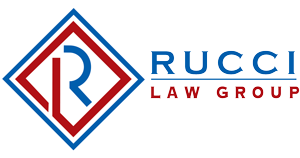Residents of New Canaan, Connecticut, like many towns, value youth sports. Securing regular funding to build and maintain top-notch athletic facilities for its teams is becoming increasingly difficult. Education budgets are stretched, and, although residents support the myriad of school- and town-offered activities, no one wants to pay for them with tax increases.
Faced with that reality, a group of local residents founded the New Canaan Athletic Foundation (“NCAF”) as a volunteer fundraising organization in mid 2016. At its inception, NCAF’s most pressing job was to establish an endowment for future required turf replacement at Dunning Field, the high school football stadium. Once that project was finished, the group wanted to continue, with a stated goal of supporting the experience of all student athletes with a broad-based community commitment towards facilities and a healthy lifestyle. That encompasses improving fields and practice areas for most of the town’s youth sports (including football, track, tennis, baseball/softball, soccer, and lacrosse), and identifying current and future needs across all athletic facilities.
The organization soon found out that setting up a non-profit 501c (3) operation is more complicated than it first appears. After some troubles arose, the Foundation hired Rucci Law Group (“RLG”) to steer them through the incorporation period.
“NCAF faced a problem that is all too common for non-profit start-ups,” said Kate Diehm, Attorney at RLG. “They relied initially on online forms set up on the State of Connecticut website. What they didn’t realize is that the state paperwork requirements are not the same as those of the IRS, which has different regulations regarding dissolution issues, among other things.” Attorney Diehm continued, “It’s not so easy to do this yourself—it’s easy to be confused by the different rules surrounding for-profit and not-for-profit organizations.”
Over the past year, RLG has helped NCAF rework its formation documents, bylaws, certificate of incorporation, and conflict of interest documents to meet IRS standards. RLG also helped NCAF develop budgets and projections and formalize a description of the work they seek to accomplish. Despite some delays caused by the federal government shutdown earlier this year, the documents were all approved and the organization’s designation as a non-profit corporation is now complete. With the paperwork done, NCAF has the legal authority to spend money and can now seek to carry out its mission.
Since its early days, NCAF has sought not only to raise project funds but to change the entire athletic funding process. Part of Rucci’s work has involved helping the organization negotiate a novel public/private partnership with the town. This involves the Foundation taking over collection of the “fields usage fee” collected for each player every season, the proceeds of which are used for maintenance. NCAF also expects to create a master plan to schedule anticipated field repairs and replacements. The group will seek to rent out the facilities during the off-season, thus offsetting expenses with an income stream. The town reserves the right to prioritize projects and designate how funds are spent.
“This is not a partnership in legal terms, in that the groups have no liability for each other and they cannot act on each other’s behalf,” explained Attorney Diehm. “But it is very much a partnership in every other sense of the word, and it is an exciting experiment that may well become an important way for towns to work with outside organizations for the benefit of all involved,” she added.
The town/NCAF partnership was approved earlier this summer and the NCAF is already planning its first fundraiser—a townwide picnic to be held at Waveny Park on Saturday, September 7th. The newly hired NCAF executive director Bobby Rushton is actively working with the town to develop the business plan for a newly created Athletic Enterprise Zone that will manage and optimize field use.
RLG’s initial work is done, but the firm will have an ongoing role in reviewing annual maintenance procedures, preparing annual report documents and facilitating required annual meetings. “The nature of such organizations is that parents’ involvement will change over time as children move through the school system, so we at RLG are the constant—the institutional memory of the organization,” noted Attorney Diehm.
For more information about non-profit organization formation and planning, please contact Kate Diehm.
